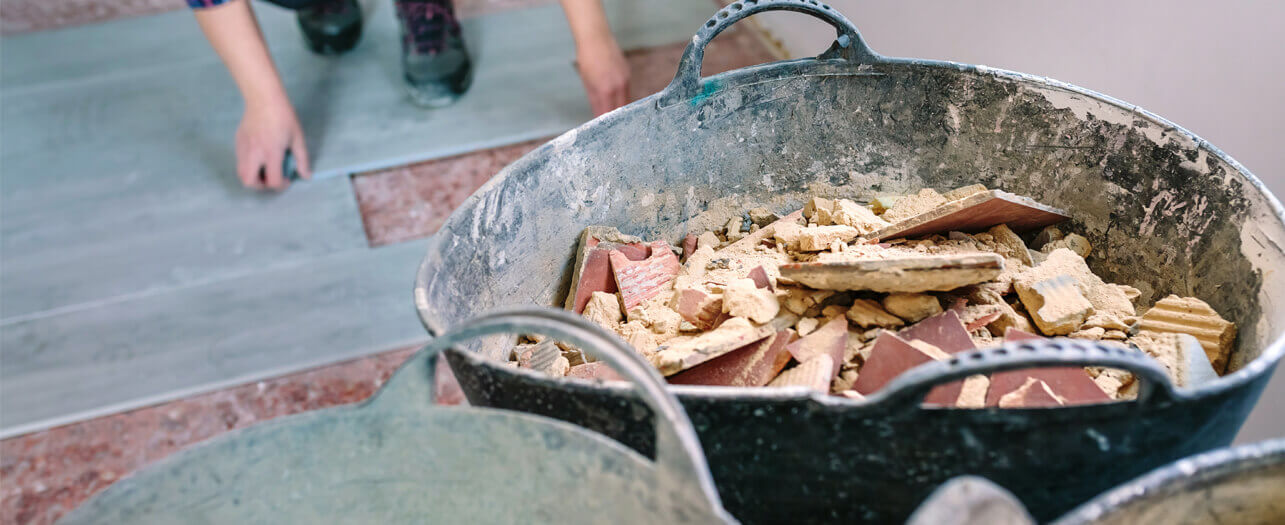When it comes to construction projects, whether you're paving roads, building skyscrapers, or renovating existing structures, one thing is certain: waste is an unavoidable part of the process. In fact, construction activities generate significant amounts of waste, and much of this debris ends up in landfills. This not only has environmental implications but also imposes substantial costs on construction companies and their clients.
So, it's really important for every construction worker and boss to think about what they'll do with all the waste from the start of the project until it's all done. They need to figure out safe and efficient ways to get rid of it without harming the environment or wasting money.
This blog will guide you on the proper disposal of construction waste and how to leverage garbage or waste skips for the same.
What is Categorized as Construction Waste?
Construction waste, as the name suggests, refers to any material or substance that is produced as a byproduct of construction, renovation, or demolition activities. These materials can be broadly categorized into several groups:
- Demolition Debris: When old buildings or structures are demolished, the resulting debris such as concrete, bricks, wood, and metal is considered construction waste.
- Excess Materials: This category includes materials that were ordered in excess for a project and are no longer needed, like extra bricks, tiles, or lumber.
- Packaging Waste: All the packaging materials that come with construction materials, such as cardboard, plastic wrap, and foam, are also part of construction waste.
- Non-Recyclable Materials: Some materials used in construction, like asbestos or lead-based paint, may not be recyclable and are treated as hazardous waste.
- Hazardous Waste: Any material that poses a risk to human health or the environment, such as chemicals, solvents, and certain types of insulation.
- Green Waste: All organic materials like tree branches, grass, and leaves that are removed during construction or landscaping.

Smart Construction Waste Management Strategies
Effective construction waste management is essential for various reasons, including reducing the environmental impact, complying with regulations, and saving money. Here are some smart strategies to handle construction waste more efficiently:
- Sorting and Recycling: Construction waste can often be sorted and recycled. Materials like concrete, metal, wood, and cardboard can be separated at the site and sent to recycling facilities instead of landfills. This not only reduces waste but also conserves resources.
- Use Garbage Skips and Waste Skips: Garbage skips or waste skips are large containers that can be placed on construction sites to collect and transport waste efficiently. They come in various sizes to accommodate different types of waste and can be easily loaded onto trucks for disposal. Using these skips promotes organized waste collection and minimizes litter on the site.
- Hazardous Waste Management: Properly handle and dispose of hazardous materials according to local regulations. This may involve using specialized containers, labeling, and ensuring that workers are trained to manage hazardous waste safely.
- Reuse Materials: Whenever possible, consider reusing materials from the demolition phase in the construction project. Salvaging materials like bricks, wood, or fixtures not only reduces waste but also saves money.
Get the Best Equipment for Construction Waste from POWER Bear
Efficient construction waste management calls for the right tools and equipment. One trusted source for such equipment is POWER Bear. They are a leading garbage skip supplier in Dubai and offer a wide range of garbage skips and waste skips designed to meet the specific needs of construction sites.
- Garbage Skips: POWER Bear's garbage skips are available in various sizes, ensuring that you can choose the one that best suits your project's waste disposal requirements. These skips are built to withstand the rigors of construction sites and make waste collection and transportation more efficient.
- Waste Skips: Waste skips from POWER Bear are designed to handle various types of construction waste, from concrete debris to packaging materials. Their robust construction ensures durability, and the ease of loading and unloading simplifies the waste management process.
Construction waste is an inevitable part of any construction project, but it doesn't have to be a burden on the environment or your budget.
By categorizing waste types, implementing smart waste management strategies, and utilizing reliable equipment like garbage skips and waste skips from POWER Bear, you can minimize the impact of construction waste while enhancing efficiency and sustainability in your construction endeavors.
Remember, responsible waste management is not just a legal obligation; it's a commitment to a cleaner, greener future.


